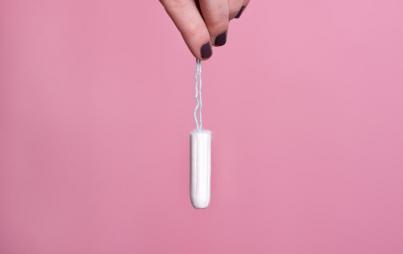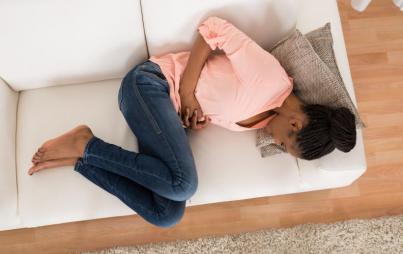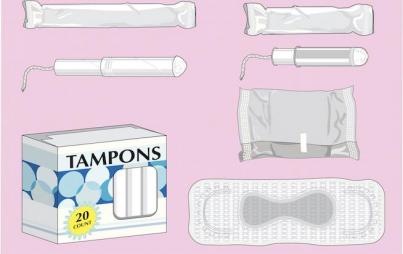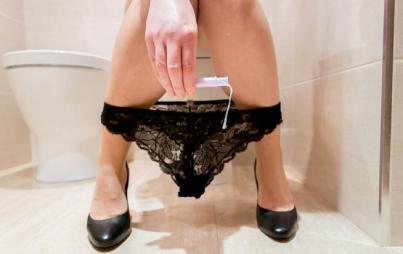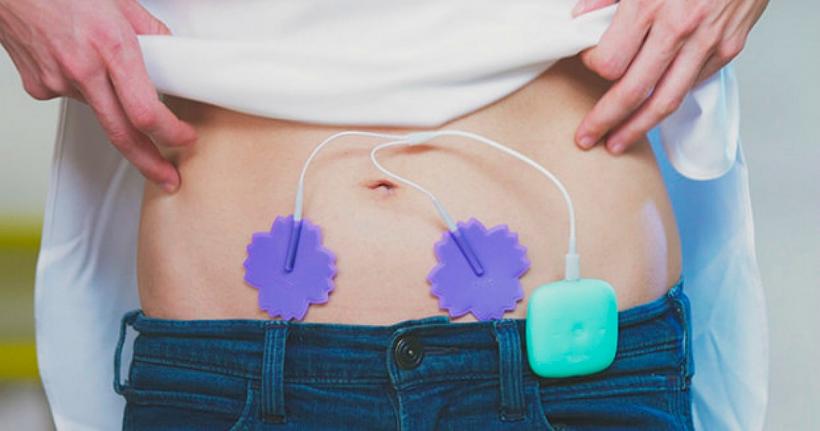
The ‘off-switch for menstrual pain.’ Image: Livia.
A drug-free solution to an issue that often sees sufferers self-medicating with over-the-counter purchases.
The Livia device.
It sounds like the cross between a vital organ and a star-sign but it’s promising women an instant solution to a persistent problem: period pain.
The end of period pain.
The Israeli company that produces the device (and also bears its name) says its new electronic offering is the ‘off-switch for menstrual pain.’
The device is said to work by producing an electronic frequency that penetrates and soothes the cramping muscles.
The result is said to be instantaneous and will continue as long as the product is attached.
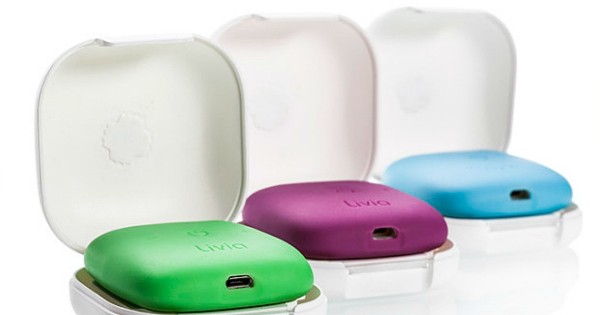
The company has created an online crowdfunding campaign for the device that has raised almost $400,000 towards its creation.
Chief medical adviser for Livia, Bari Kaplan, told Cosmopolitan the device was able to block pain without interfering with usual body function.
“Mainly it's working on a thing that we call the gate pathway,” Kaplan said. “It blocks any pain sensation message that's going through the spinal cord. Everything else will continue normally, it doesn't change the flow [of your period].”
The device advertises itself as a drug-free solution to an issue that often sees sufferers self-medicating with over-the-counter purchases. The device also claims to bear no side-effects and be a one-off purchase that can be used 'for years.'

The only drawbacks seem to be whether or not the device actually works and that it only works while it's attached to your body.
Similar devices that treat uterine muscle pain through electrical nerve stimulation have been proven to be more effective than no treatment, according to American medical research published in 2009.
Livia will still need to make the findings of their own studies public as well as offer the devices to independent trials before it can hold up its claims.
Clinical proof sounds important but considering 3,267 people have already backed the device, a promise may be the only proof some people need.
This article originally appeared on Mamamia. More from Mamamia:


